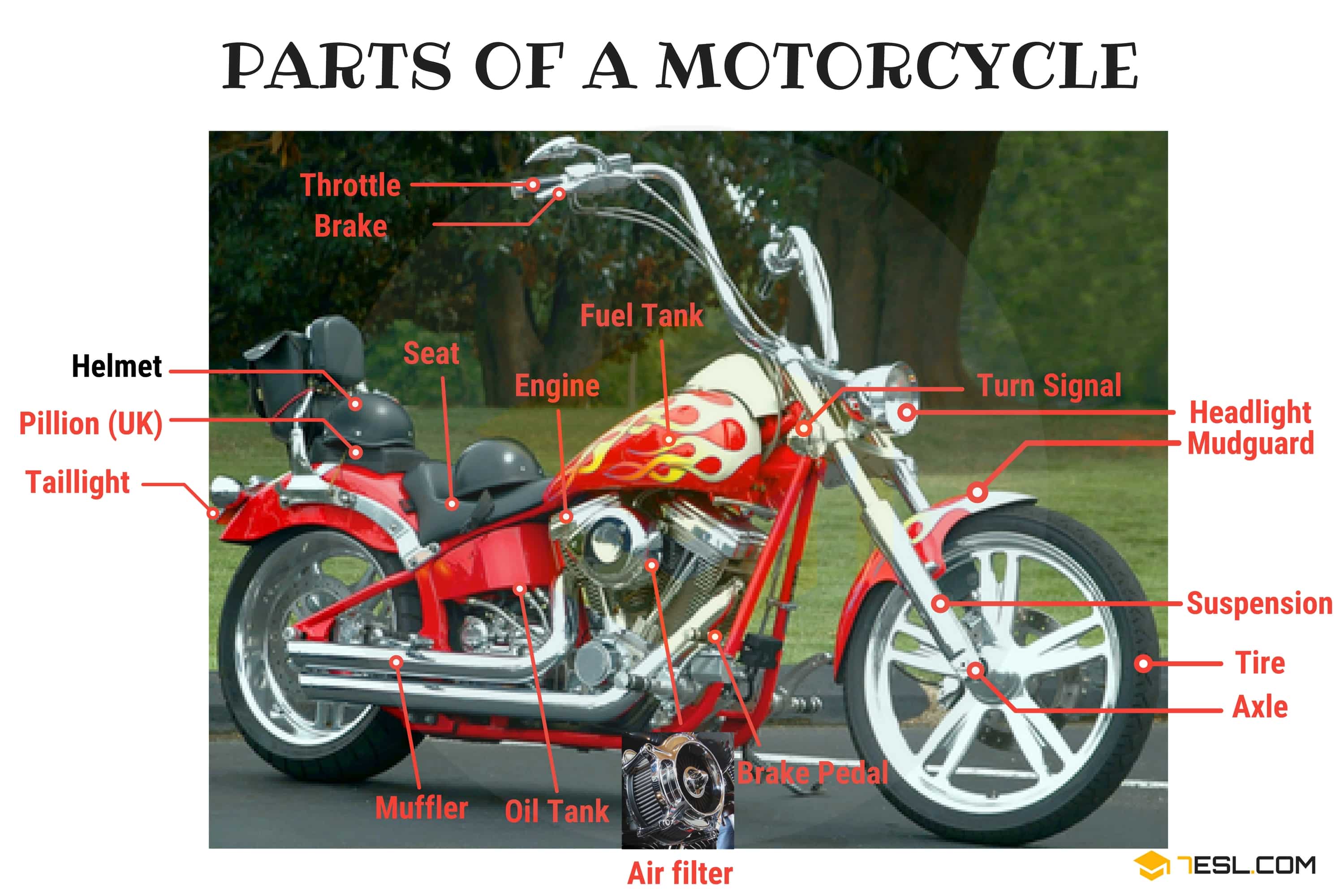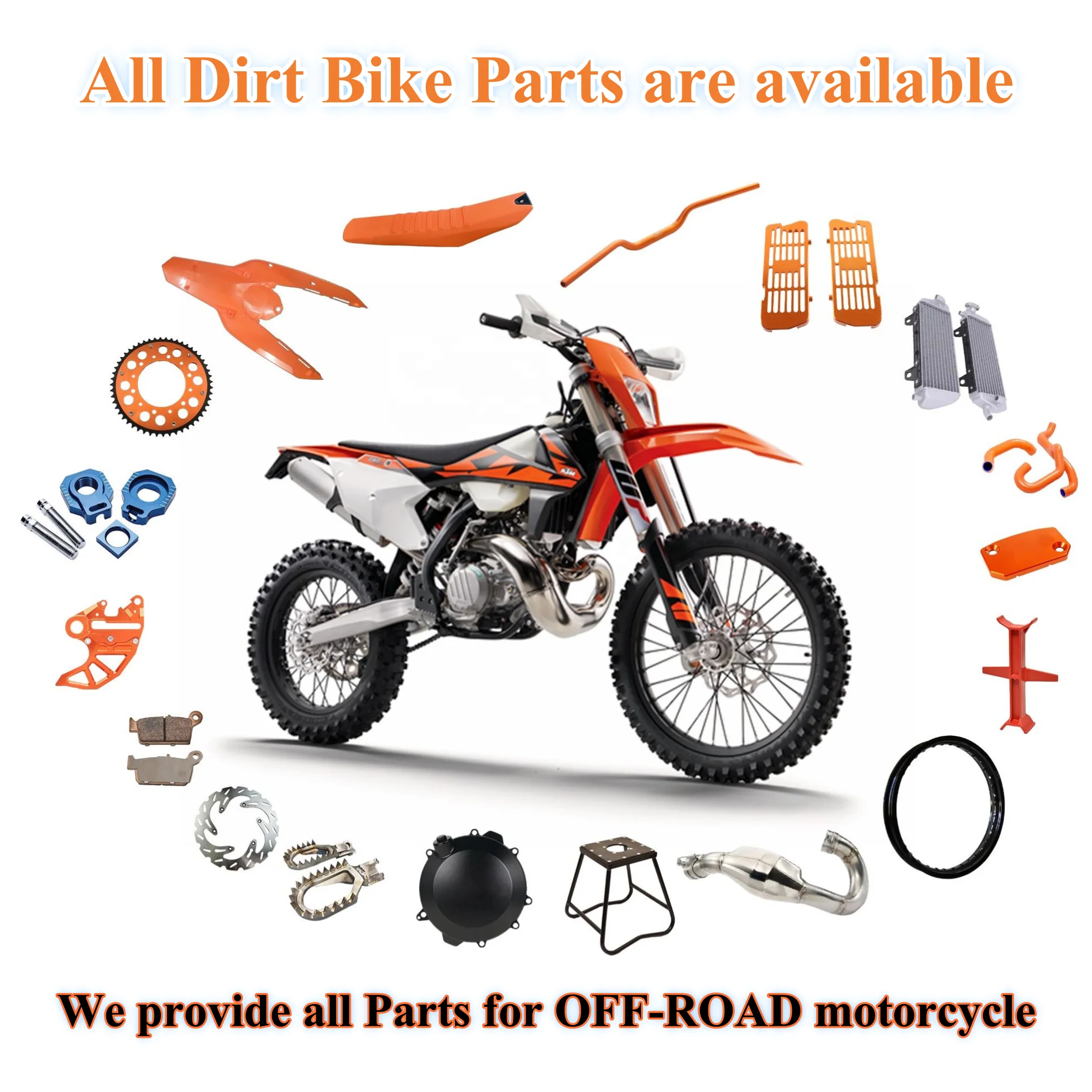Maintenance Schedule for Keeping Your Motorcycle Spares Christchurch in Peak Shape
Maintenance Schedule for Keeping Your Motorcycle Spares Christchurch in Peak Shape
Blog Article
Discover the Crucial MotorBike Parts You Required for Optimum Performance
Comprehending the important parts of a motorbike is essential for attaining peak performance. Each part, from the engine to the braking system, plays a critical function in overall performance and safety. Routine upkeep can prevent unforeseen failings and boost the riding experience. Nevertheless, lots of cyclists forget the intricacies of these systems. Finding how they interact can cause an extra effective experience. What vital components should every biker focus on?
The Engine: The Heart of Your Motorbike
The engine acts as the core element of a motorcycle, driving its performance and defining its abilities. It is accountable for converting fuel right into power, which powers the bike ahead. Different kinds of engines are employed, including single-cylinder, V-twin, and inline configurations, each offering distinctive attributes matched for different riding styles and purposes. The engine dimension, commonly gauged in cubic centimeters (cc), considerably affects efficiency, with larger engines generally offering more power and torque.Furthermore, the engine's design and technology, such as gas shot systems or air-cooling versus liquid-cooling, affect effectiveness and reliability. Upkeep is crucial for peak operation; factors like normal oil changes and monitoring trigger connects guarantee long life. Bikers usually consider an engine's responsiveness and level of smoothness, as these features improve the overall riding experience. Inevitably, the engine continues to be a critical aspect that defines not just the motorbike's efficiency however likewise the biker's link to the device.
The Transmission: Moving Gears Smoothly
The transmission plays an essential duty in a motorbike's efficiency, especially in the mechanics of equipment shifting. Comprehending just how to move equipments smoothly can boost the general riding experience, while routine upkeep warranties peak performance. Correct attention to these elements can significantly impact the durability and performance of the motorcycle.

Equipment Shifting Mechanics
Smooth gear moving is essential for ideal motorbike performance, considerably influencing both acceleration and control. The technicians of gear moving include the interaction in between the clutch, equipment bar, and transmission system. When a biker involves the clutch, it disengages the engine from the transmission, enabling an equipment adjustment without damaging the elements. A well-timed release of the clutch, combined with accurate motion of the gear lever, promotes a seamless change in between gears. This procedure ensures that the engine runs within its ideal power band, improving efficiency. Motorbike Components NZ. Furthermore, comprehending the gear ratios and their result on speed and torque can assist bikers make notified options during shifts, eventually adding to an extra delightful and receptive riding experience
Upkeep Tips Significance
Regular upkeep plays a vital duty in assuring that the transmission system runs effectively, enabling smooth equipment shifts. On a regular basis changing the transmission and examining liquid is essential, as old liquid can cause enhanced friction and wear. Additionally, inspecting the clutch for wear guarantees peak engagement and disengagement, avoiding slippage during equipment adjustments. Lubrication of relocating parts is equally important to reduce friction and boost efficiency. Bike proprietors must also keep track of for leaks and uncommon sounds, as these can indicate underlying issues. By sticking to these maintenance pointers, cyclists can extend the lifespan of their transmission system, ensuring that equipment changes remain smooth and adding to the total efficiency of their motorbike.
The Braking System: Ensuring Security on Every Ride
Braking systems are basic parts that straight influence a motorcycle's security and performance. They include different parts, including brake pads, blades, calipers, and hydraulic lines, all functioning together to ensure reliable deceleration. The kind of braking system-- usually either disc or drum-- affects responsiveness and stopping power.Regular upkeep is vital to copyright peak efficiency; used brake pads can cause decreased efficiency and increased quiting ranges. Additionally, the quality of brake liquid ought to be monitored, as it can take in moisture gradually, compromising braking efficiency.Riders need to likewise take into consideration the significance of anti-lock stopping systems (ABDOMINAL MUSCLE), which prevent wheel lockup throughout abrupt quits, improving overall safety and security. Correctly operating brakes are not practically quiting; they instill self-confidence in the rider, permitting more secure navigation with different terrains. Ultimately, a trustworthy braking system is vital for enjoying every trip with comfort.
The Suspension: Enhancing Comfort and Control
A well-functioning suspension system greatly adds to a motorcycle's overall efficiency, matching the efficiency of the braking system. The suspension plays a significant role in soaking up shocks from irregular surface areas, assuring a smoother trip while maintaining tire call with the road. This call is essential for both security and control, permitting riders to navigate corners with self-confidence and precision.Different sorts of suspension systems, such as telescopic forks or mono-shocks, provide differing levels of comfort and handling. Properly tuned suspension enhances responsiveness, supplying the motorcyclist with an extra connected feel to the motorcycle. Regular maintenance checks are very important to identify the suspension components, including springs and dampers, are working at their finest. A reliable suspension system not only elevates the riding experience yet additionally adds to the long life of various other motorcycle components by lessening damage. Therefore, purchasing high quality suspension is essential for any serious motorcycle enthusiast.
The Tires: Connecting You to the Roadway
Tires play a crucial function in a motorcycle's performance, functioning as the key link between the road and the biker. Understanding the different sorts of tires available can significantly influence taking care of and safety. In addition, normal maintenance is crucial to ensure peak tire efficiency and long life.
Tire Enters Explained
How do different tire types affect a motorcycle's performance? Tire kinds play a vital role in figuring out a motorbike's handling, grasp, and stability. Sporting activity tires, developed for high performance, offer improved grip and responsiveness on smooth roadways, making them suitable for racing and aggressive riding. On the other hand, exploring tires focus on toughness and convenience, giving a smoother adventure for long-distance traveling. Off-road tires, defined by their tough tread patterns, master grip on unpaved surfaces, suitable for experience lovers. Additionally, dual-sport tires mix qualities from both on-road and off-road groups, satisfying functional riding needs. Ultimately, choosing the ideal tire type is important for optimizing performance, making certain safety and security, and enhancing the general riding experience.
Upkeep Tips Offered
While riding when traveling, preserving optimal tire problem is important for safety and efficiency. Regularly examining tire stress is essential, as under-inflated tires can bring about inadequate handling and boosted wear. It is a good idea to evaluate step depth frequently; used tires compromise hold and stability. Furthermore, riders ought to try to find signs of damages, such as cracks or lumps, which can suggest the requirement for substitute. Turning tires periodically ensures even use, improving longevity. Keeping tires tidy from particles and staying clear of extreme aesthetics can extend their life-span. Preserving correct placement and balance adds to peak efficiency, lessening stress on other bike parts. Abiding by these upkeep tips will significantly enhance the overall riding experience.
The Fuel System: Sustaining Efficiency and Efficiency
The fuel system plays a vital role in making the most of a motorbike's efficiency and efficiency, as it assures the optimum delivery of gas to the engine. It consists of several important parts, including the fuel storage tank, fuel pump, fuel filter, and fuel injectors or carburetor. Each component must function efficiently to assure a smooth and powerful ride.The gas tank stores gas and provides it to the engine via the fuel pump, which produces the required pressure. A fuel filter stops pollutants from getting in the engine, while the injectors or carburetor mix gas with air for combustion.Proper upkeep of the gas system is vital; a clogged up filter or malfunctioning injector can result in reduced performance and enhanced gas intake. By validating that click resources the gas system operates find here effectively, cyclists can appreciate better throttle action, better fuel economy, and overall improved riding experience.
The Electrical System: Powering Your Experience
An effective electrical system is necessary for the overall performance and safety and security of a motorcycle, as it powers important elements such as the ignition, lighting, and numerous digital systems. This system consists of the battery, which stores energy, and the generator, in charge of creating power while the engine runs. The circuitry harness links these components, guaranteeing reputable power distribution.Additionally, fuses shield the system from overloads, while relays aid regulate high-current devices with low-power signals. A well-maintained electric system enhances performance by guaranteeing smooth beginnings and constant operation of lights and signals, vital for cyclist visibility and safety.Regular checks of the battery's cost and links are essential for preventing electrical failings. Bikers must also check wiring for damage, making sure all components operate ideally. Inevitably, a robust electric system contributes substantially to the overall efficiency and dependability of the motorcycle.
Regularly Asked Questions
Just how Often Should I Change My Bike's Battery?
The regularity of motorcycle battery replacement relies on use and maintenance (Motorcycle Spares Christchurch). Typically, batteries must be replaced every 3 to five years. Regular checks can help recognize when a replacement is needed for peak efficiency
What Devices Do I Need for Basic Motorcycle Maintenance?
For basic motorcycle upkeep, one calls for vital devices such as a socket set, wrenches, screwdrivers, pliers, tire stress scale, and a torque wrench. These devices facilitate reliable maintenance and assure the motorcycle runs effectively and securely.
Exactly How Can I Improve My Motorcycle's Aerodynamics?
To improve motorcycle aerodynamics, one must take into consideration readjusting fairings, making use of windscreen expansions, enhancing body setting, and minimizing total weight. These adjustments assist lessen drag, boosting stability and gas efficiency during experiences.
What Are the Indications of a Failing Electric System?
Indications of a falling short electric system consist of dimming lights, difficulty starting, irregular instrument analyses, and blown merges. Motorcycle Spares Christchurch. Unusual scents or deterioration around battery terminals may also show underlying concerns requiring instant focus for safety and security and efficiency

How Do I Choose the Right Oil for My Motorcycle?
When selecting oil for a bike, one need to think about the supplier's requirements, thickness scores, and the sort of riding. Additionally, artificial versus conventional oil can impact performance and engine defense, influencing the decision significantly. The engine size, typically determined in cubic centimeters (cc), significantly influences efficiency, with larger engines generally giving even more power and torque.Furthermore, the engine's design and innovation, such as fuel shot systems or air-cooling versus liquid-cooling, impact performance and reliability. A well-functioning suspension system considerably contributes to a motorcycle's overall performance, enhancing the efficiency of the braking system. The gas system plays a crucial role in maximizing a motorcycle's efficiency and efficiency, as it assures the optimal distribution of gas to the engine. A gas filter prevents impurities from getting in the engine, while the injectors or carburetor mix fuel with air for combustion.Proper maintenance of the gas system is essential; a blocked filter click over here or malfunctioning injector can lead to lowered performance and boosted gas consumption. A properly maintained electrical system boosts efficiency by making sure smooth starts and constant operation of signals and lights, important for motorcyclist visibility and safety.Regular checks of the battery's cost and links are important for preventing electric failings.
Report this page